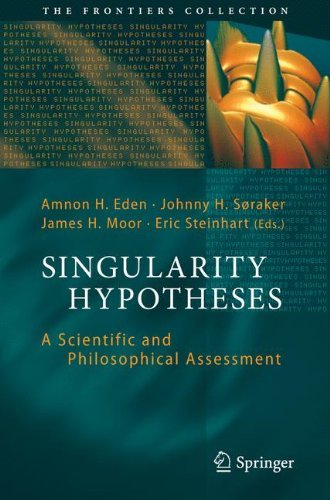Singularity Hypotheses: An Overview
Singularity hypotheses refer to either one of two distinct and very different scenarios. The first (Vinge 1993; Bostrom to appear) postulates the emergence of artificial superintelligent agents—software-based synthetic minds—as the ‘singular’ outcome of accelerating progress in computing technology. This singularity results from an ‘intelligence explosion’ (Good 1965): a process in which software-based intelligent minds enter a ‘runaway reaction’ of self-improvement cycles, with each new and more intelligent generation appearing faster than its predecessor. Part I of this volume is dedicated to essays which argue that progress in artificial intelligence and machine learning may indeed increase machine intelligence beyond that of any human being. As Alan Tu-ring (1951) observed, “at some stage therefore we should have to expect the machines to take control, in the way that is mentioned in Samuel Butler’s ‘Erewhon’”: the consequences of such greater-than-human intelligence will be profound, and conceivably dire for humanity as we know it. Essays in Part II of this volume are concerned with this scenario.
A radically different scenario is explored by transhumanists who expect progress in enhancement technologies, most notably the amplification of human cognitive capabilities, to lead to the emergence of a posthuman race. Posthumans will overcome all existing human limitations, both physical and mental, and conquer aging, death and disease (Kurzweil 2005). The nature of such a singularity, a ‘biointelligence explosion’, is analyzed in essays in Part III of this volume. Some authors (Pearce, this volume) argue that transhumans and posthumans will retain a fundamental biological core. Other authors argue that fully functioning, autonomous whole-brain emulations or ‘uploads’ (Chalmers 2010; Koene this volume; Brey this volume) may soon be constructed by ‘reverse-engineering’ the brain of any human. If fully functional or even conscious, uploads may usher in an era where the notion of personhood needs to be radically revised (Hanson 1994). (Read on)

